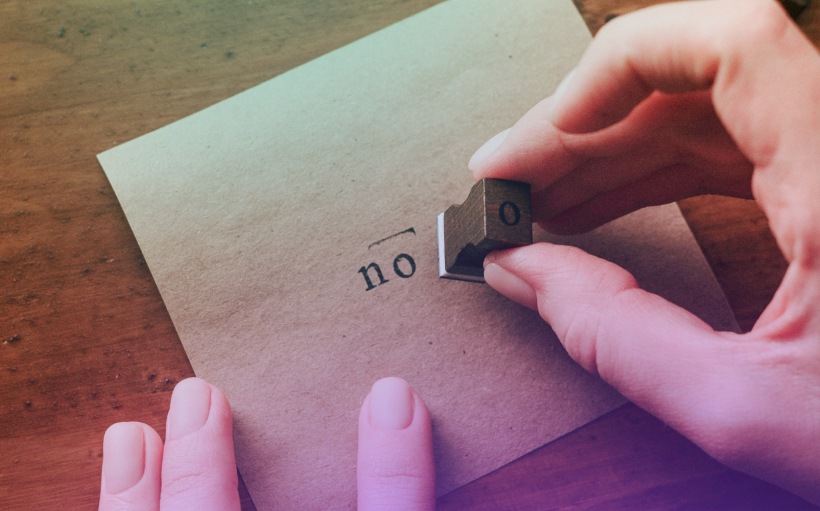After a devastating relationship breakup, I threw myself into the dating scene by registering on Hily. I had over 100 dates - some absolute disasters, some pretty average, and some that were actually great. So many stories to tell and insights to share with you guys!
9 Things You Can Do When You Are Feeling Lonely in a Relationship
Feeling lonely is a natural part of life that almost everyone goes through from time to time. Whether you have a healthy relationship or not, feeling lonely in a relationship is something that happens. However, loneliness can cause issues for those who experience it.
Loneliness can appear whether you have been in a long-term relationship or not. Generally, it stems from a lack of availability to spend time with others and a severe lack of emotional connection. And at times, feeling lonely can cause issues with mental health, long-term relationships, and more. So let’s look at why a person may feel lonely and what you can do if you feel lonely throughout your romantic relationships.
Why Do Some People Feel Lonely in Their Relationships?
There is no direct answer as to why someone may find themselves feeling lonely in their relationships. For some, this loneliness stems from a lack of emotional connection between themselves and their partner. For others, it could be comparing their current relationship to past relationships they have had. But each situation is unique to give a one-size-fits-all answer.

Hily is a dating app with over 26 million users. Install Hily today and establish meaningful connections with interesting people worldwide. Find love or friendship – you can get anything you’re looking for!
7 Reasons Why You Might Be Feeling Lonely in a Relationship
Why might you feel lonely in a relationship? Although there is never a direct answer to this question, loneliness in a relationship can be caused by a number of factors. By reading the advice from a relationship expert, we have found that loneliness can affect anyone. Here are some of the reasons why you may find yourself feeling lonely.
1. Codependency
Spending time with the person you love is great; however, the time spent together may become too much or unhealthy. Codependency, or relationship addiction, is a common phenomenon in which a person may be feeling disconnected or detached if separated from their partner for short periods. If that’s your case, the moments of alone time may be painful for you.
If you experience feeling of incredible loneliness whenever you and your partner are separated, you may suffer from insecure attachment styles. That’s why you may experience anxiety and depression when you are apart.
Related reading: How to Stop Being Codependent and Reclaim Your Life
2. You Start Having Different Interests
People are different and will often move in different directions as they grow up. These choices may lead to you and your partner developing various interests, and gaining a separate social life from each other. But if you’re attached to this person, the natural separation can leave you feeling deeply disconnected from the person you love.
When your beloved person finds a new interest you cannot share, you may feel like your relationship has nothing going for it anymore. You may even find it hard to have a good conversation with them anymore. And if the change is about your core values, you may lose this person from your life for a while.
3. Unmet Needs
You may start feeling lonely in your relationship when you find that none of your needs are being met. The icky feelings appear because of an imbalance of giving and receiving. For example, if you always ensure that your partners can always have fun and enjoy themselves, you may suffer when they are not in a line of communication when you need them. Loneliness results from your partner’s inability to deliver on your physical or emotional needs.
Related reading: The Love Language of Gift Giving
4. Not Feeling Wanted
Feeling unwanted can lead to you feeling lonely. The thought process may suggest that your partner has no interest, making you feel lonely.
Your feelings are true in this case: being wanted in a relationship is a big deal. If your partner does not want you, this is a solid reason to feel lonely in your relationship.
5. Lack of Deep Conversations
No matter who our partners are, communication is an incredibly important aspect of any relationship. When you cannot share stories or effectively communicate in any way, you struggle to feel connected with each other.
This can ultimately lead you to feel unheard or be unable to deal with underlying problems in your relationship.
Related reading: Quality Time – It’s a Love Language
6. Infidelity and Betrayal
Feelings of loneliness can stem from your partner cheating on you. Of course, when you are outside that situation, it’s easy to say how you would seek professional support and break up with them. However, in real life, it never is as simple as that.
Even if you choose to end the relationship, the betrayal’s effects can still cause mental health issues. You may lose your self-compassion, and feel worthless. You may even put yourself through periods of social isolation which can cause even worse problems including chronic illness. That’s why having professional support in this case is so critical.
7. A Loveless Relationship
Sometimes you end up with the wrong person but feel the need to stay with them because of how your relationship published itself.
You may not feel fulfilled or obligated to stay because of an already licensed marriage. However, you both never developed feelings for each other, which can lead to you both experiencing loneliness in your relationship. It’s just an unhappy relationship that has to evolve – or end.
Related reading: In a Transactional Relationship? Here’s How to Make It Work

How to Stop Feeling Sad and Lonely in a Relationship
Sometimes it takes more than just being in the same room as someone else to combat loneliness. You can do many things when you want to stop feeling lonely – from self-help books to eating together at the dinner table. Check out 9 top ways for you and your partner to not be feeling lonely in a relationship.
1. Limit Social Media
While social media can be good for you on occasion, it can cause you to feel lonely as if you are missing out. Using social media can be the reason why you and your partner have even fewer deep talks, which can lead to feelings of loneliness in a relationship.
By limiting the use of social media, you end up spending more time together and gaining a sense of a better connection again.
2. Don’t Assume You’re Understood
Even if your partner seems to know everything about your wants and needs, don’t assume they will always predict or understand what you are going through. Even couples with the highest levels of emotional intimacy and connection can have trouble from time to time.
Always be clear about your wants and needs. That way, you know that your partner can always understand you.
3. Reach Out to Your Friends and Family
It doesn’t matter if your friends or family live far away from you. When you feel alone in a relationship, keeping up those relationships with others outside of your romantic circle and focusing on other connections is important. Hold space for other important people in your life while allowing your partner time to pursue their other interests outside your relationship.
Chances are both of you had meaningful social and family lives before you met each other. Your loneliness might stem from the fact that you haven’t kept those connections up.
4. Discuss Your Feelings With Your Significant Other
“Communication is what keeps couples on the same page and feeling like they are solving problems together rather than against one another.”
Sarah Epstein, a licensed marriage and family therapist
You may be able to overcome loneliness in a relationship through communication. Talk to your partner or spouse about your experiences, and what you want to change. If you have tried and are still feeling unheard, a family therapist can help you communicate your feelings about your relationship with your partner.
If you feel afraid to talk about your loneliness, this might be a relationship you must reevaluate. It’s so important to be able to discuss these issues openly.
5. Validate Their Needs Too
Your needs are valid, and so are your desires for your relationship. That said, your partner also has valid feelings, even if they don’t align with yours.
Not everybody has the same wants or needs regarding togetherness in a relationship. You can acknowledge that there is a gap between what they want and what you want without guilting or shaming them. Setting healthy boundaries with mutual respect may help both of your needs.
Related reading: Setting Relationship Rules For a Healthy Partnership

6. Talk About Your Day
Don’t underestimate the power of small talk in a relationship. You don’t only develop a sense of closeness with your partner by taking part in fun or deeply meaningful activities. You also grow closer by simply engaging in small talk about your day or just watching TV together.
Dedicate some time each day to talking with your partner about your life and keeping them up to date. The signs of loneliness will become less painful afterwards.
7. Try Couples Therapy
“The most important benefit of couple’s therapy is the outsider lens. It is a chance to show up in our natural form, presenting our side in the way that we normally would, but get a professional’s take on where we head next.”
Meaghan Rice, LPC, therapist
We briefly mentioned the idea of getting some professional help, but it is worth bringing up as a potential way to get things back on track with your partner. These qualified medical reviewers can provide an objective analysis as well as action steps you can take to get things back on track. Attending therapy together with your partner by itself will help you when feeling disconnected.
8. Pursue Your Own Interests
When you recognize the first signs of loneliness, you might be tempted to turn to your partner and ask them for more of their time.
It could be true that your loneliness means they are neglecting you. However, that is also a sign that you are too focused on this partnership and sacrifice your own independent interests.
You will be much happier if you find things to do. Start a hobby. Work on that craft you were planning. Go hiking or hit the gym. Volunteer your time or talents. Choose what drives you and pursue your passion – and you’ll have less time to feel sad and lonely.
9. Practice Self-Care
When you’re feeling lonely in a relationship, it can be a sign you don’t pay enough attention to yourself. Thus, instead of giving yourself more care, you tend to focus on what you need from the outside world.
Bring your focus back to yourself. Don’t use that sense of loneliness as an excuse to indulge in self-pity. Instead, indulge in self-care. Find personal things to do that improve your health or make you feel better about yourself. It’ll make you feel better.

What Can You Do If Your Loneliness Has Nothing to Do With Your Partner?
You can have a great partner who spends plenty of time with you, but still feel lonely. If that’s the case, it is time to look inward:
- Why do you feel that way?
- Is it something maladaptive like a need to have excessive amounts of attention?
- Do you feel jealous they have something you don’t?
- Are you abandoned or excluded to form needy attachments, and react badly to separation?
Stop trying to find a solution but sit with those feelings.
If you’ve recognized yourself in the questions above, it’s OK. Journal about your loneliness. It’s okay to feel things without demanding solutions from yourself or others. You might find that you are fine after you process those emotions.
Related reading: Dating Someone With Depression
How Can Loneliness Affect You?
Severe loneliness is kind of a big deal. It can have impacts on your life and mental health. Here are some things to be aware of.
You May Become More Isolated from Others
Loneliness is depressing. It can sap your motivation to get out and socialize, and increase your sense that others don’t want to spend time with you. This creates an unhealthy feedback loop that leads to more isolation and loneliness.
There Is a Common Link Between Loneliness and Depression/Anxiety
Anxiety and depression often increase during times of loneliness. This was found to be particularly true in men and young adults during Covid. If you already struggle with your mental health, that can be aggravated if you aren’t spending enough time with others. Additionally, your lonely feelings could lead to depression or anxiety, even if you haven’t experienced these before.
You May Experience Issues with the Memory
Loneliness and isolation can affect your memory and thinking skills. There are a few reasons for this. If you spend too much time alone, you don’t receive the mental stimulation you need to keep your mind sharp. The people in your life, particularly your partner, may also be a needed source of social support for you. In that case, your memory may not be worse. You are feeling the impacts of them not being there to remind you of things.
Also, memory is contextual for many of us. We remember to do things because they happen in relation to other things or we do them with other people. For example, you might remember to take an antidepressant after coffee with your boyfriend. He starts blowing off your coffee date, and you no longer have that contextual reminder.
Final Thought: Nobody Should Feel Alone
If you’re feeling lonely, you deserve better. While there is no single solution to this problem, your needs are valid. Speak to your loved one, and consider trying one of the strategies here.








